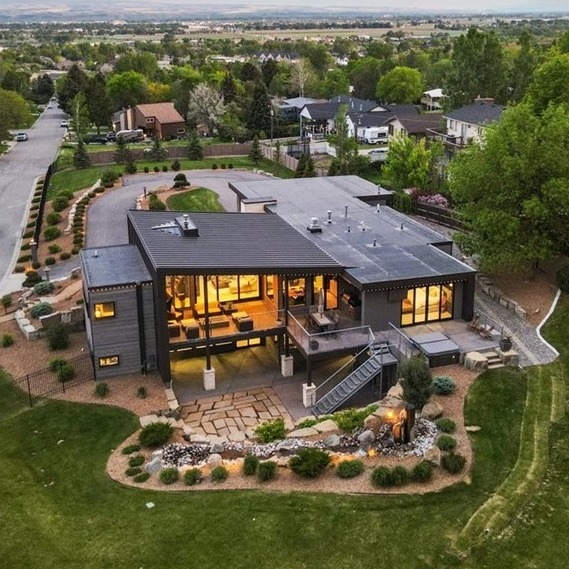Real Estate as a Wealth Building Tool: Understanding Equity, Investment Homes, and Long-Term Growth

Real Estate as a Wealth Building Tool: Understanding Equity, Investment Homes, and Long-Term Growth
When you think about building wealth, images of bustling stock markets or tech startups might come to mind. But for generations, real estate has quietly been one of the most reliable and accessible ways for everyday people to grow their net worth. Whether you are buying your first home or considering investment properties, understanding how real estate can work for you is a powerful step toward financial security.
Why Real Estate Is a Powerful Wealth Builder
Unlike many other investments, real estate offers tangible value. You can see it, touch it, and even live in it. But beyond providing shelter, real estate is unique in its ability to build wealth through appreciation, equity growth, and passive income from investment properties. Let’s break down how this works in practice.
Building Equity: Your Secret Financial Superpower
Equity is the portion of your property that you truly own. It’s the difference between your home’s current market value and the amount you still owe on your mortgage. For example, if your home is worth $350,000 and your mortgage balance is $250,000, you have $100,000 in equity.
Every monthly mortgage payment you make chips away at your loan balance while your home (hopefully) increases in value over time. This combination means your equity grows in two ways:
- Principal Paydown: Each payment reduces what you owe, so your stake in the property increases.
- Appreciation: As the local market grows, so does your home’s value, further boosting your equity.
Over the years, this can add up to substantial wealth, especially if you stay in your home for a long time or make extra payments to pay down your mortgage faster.
Investment Homes: Planting Seeds for the Future
Once you understand how equity works, you might consider expanding your real estate portfolio with an investment property. This could be a single-family home, a duplex, or a small apartment building. The goal is to purchase a property that you rent out to tenants, generating ongoing rental income while the property itself appreciates in value.
Here’s how investment homes can help you build wealth:
- Rental Income: Tenants’ rent payments can cover your mortgage and expenses, while any excess becomes passive income for you.
- Tax Advantages: Owners of investment properties may benefit from tax deductions for mortgage interest, property taxes, repairs, and even depreciation. Always consult a tax professional for advice tailored to your situation.
- Leverage: Real estate allows you to use borrowed money to buy an asset that can grow in value. By making a down payment and financing the rest, you control a valuable property with relatively little cash up front.
Long-Term Growth: The Power of Patience
Real estate is rarely about getting rich overnight. Instead, it rewards patience and long-term thinking. Over time, property values tend to rise, even if there are occasional dips. Holding onto real estate for several years or decades can result in significant appreciation and increased equity.
Consider the story of a family who bought a modest home in the 1990s. Over thirty years, that home’s value more than doubled, and their mortgage was paid off. Not only did they save money by not renting, but they also built a nest egg that could be used for retirement, college tuition, or helping the next generation buy their first homes.
Building Wealth Step by Step
- Start with Your Primary Home: For many, buying a home is the first step. Over time, as you pay down your mortgage and the home appreciates, you build equity that can be tapped for future investments or major expenses.
- Expand with Investment Properties: Once you have built equity and feel comfortable, consider purchasing an additional property to rent out. This can diversify your income and increase your wealth over time.
- Reinvest and Grow: Many investors use the equity from one property to help buy another, creating a cycle of growth. This is sometimes called “leveraging” your investments.
Common Questions About Real Estate Wealth Building
- Isn’t real estate risky? Like any investment, there are risks involved. Markets can fluctuate, and property values can go down as well as up. However, real estate tends to be less volatile than stocks and offers the added benefit of providing housing and income.
- What if I don’t have much money to start? Many people begin with their own home, using programs for first-time buyers or low down payment loans. Over time, as you build equity, you can use it to help fund future investments.
- How do I get started? Talk to a local real estate agent who understands your goals and can guide you through the process. Research neighborhoods, financing options, and potential rental markets before making a move.
The Bottom Line
Beyond just being a place to live, real estate is a proven way to build wealth, create financial security, and leave a legacy for your loved ones. Whether you’re just starting out or looking to expand your investments, understanding how equity and investment homes work can put you on the path to long-term success.
Ready to explore your options or have questions about building wealth with real estate? I’m here to help every step of the way. Reach out anytime:
- Richard Hébert, Advisor, Engel & Völkers
- Phone: 504-617-5184
- Email: richardw.hebert@engelvoelkers.com
- Website: richardhebertrealtor.com
Categories
Recent Posts











